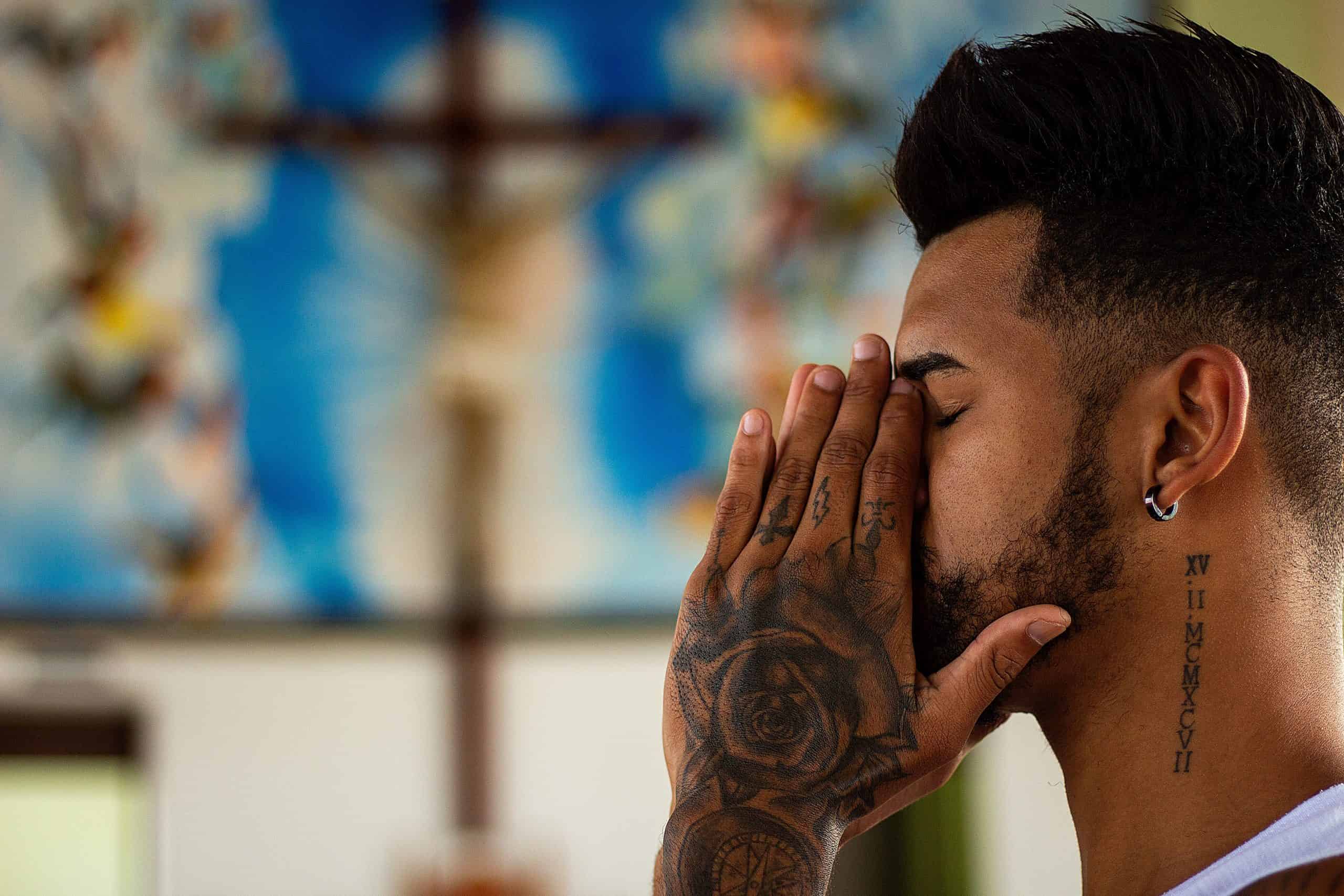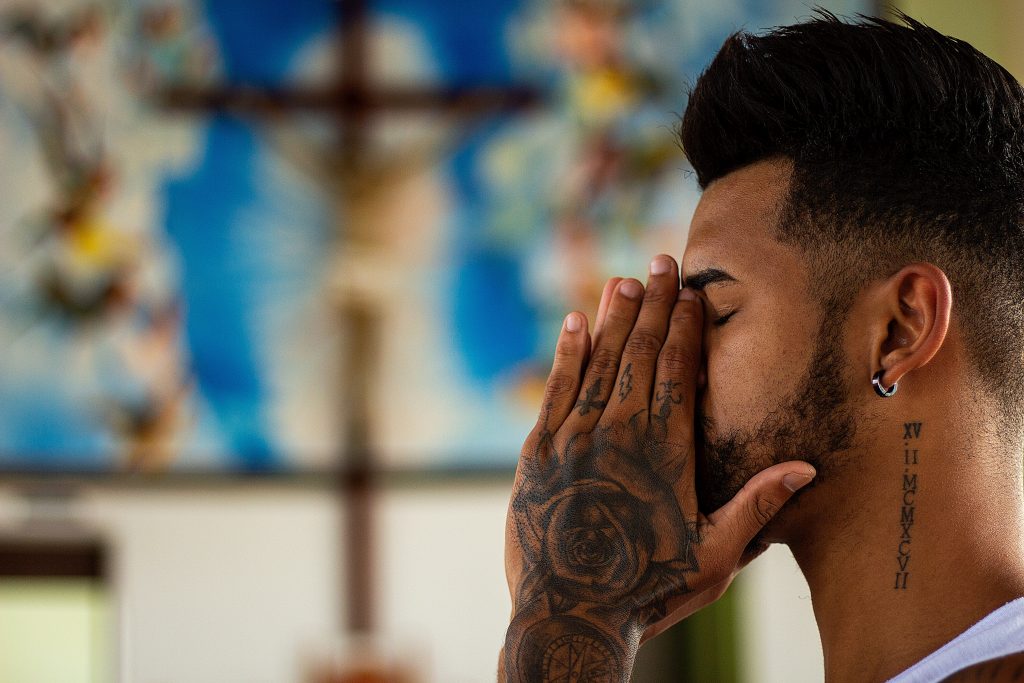Are body piercings, fade hairstyles and tattoos haram?


Women may pierce their ears
In general women have had their ears pierced throughout history and throughout the world. This is permissible. However, multiple ear piercings would require the consent of the husband as he might find it unattractive in his wife. Therefore it is a matter of mutual consent. (Similarly it is not right for a husband to do something to his appearance which his wife finds unattractive.)
Multiple piercings are not permissible
Having multiple ear piercings are not permissible because they deform and mutilate the body. As excessive piercings are harmful to the body, they are not permissible to do this.
Allah Almighty created the human form to be beautiful, as He said in Surat al Teen:
Indeed, We created humans in the best form. (95:4)
Excessive piercings would be “tagheer khalq Allah‘ – altering the design of Allah.
Moreover our body is an amanah – in other words we are entrusted to look after and protect our bodies. And our body has a right upon us.
Body piercings are haram
Piercing parts of the body, other than ears, is not allowed, particularly the new trend to pierce the face, tongue, lips, belly buttons, and genitalia. This is harmful for the body.
In Surat al Nisa, we are told that Shaytan beautifies ugly practices for us. Body piercings and other modifications which alter and exaggerate the human form are such practices.
And I will surely mislead them and I will surely arouse in them false desires and I will surely command them so they will slit the ears of cattle and I will surely command them and they will change the nature created by Allah. (4:119)
In some parts of the world, such as the Masai tribes and Huaorani tribes of the Amazon forest, they stretch the ear lobes using wood, tusks, thorns and larger objects, as they think these are signs of beauty and wisdom. However this is an unacceptable distortion of the human form.
Widespread cultural practice does not make something halal
Some cultural practices cause even more harm to the individual, such as female circumcision (female genital mutilation), and such practices must be stopped. Though they are widespread, entrenched in some societies where they are accepted as the norm and have been practiced throughout history – this does not make them acceptable. There is no basis in Islam for it.
If something is harmful, we have to stop it, not because it is cultural but because it is harmful. We don’t submit to culture when it is to the detriment of people’s health or dignity.
Men should not pierce their bodies
Men are not permitted to have body piercings. This is because jewellery (with the exception of a silver ring), make up, nail polish are beautification for women, and Islam prohibits men from styling themselves in a way that makes them effeminate.
It was narrated from Ibn ‘Abbas (may Allah be pleased with him) that the Prophet (peace be upon him) cursed men who imitate women and women who imitate men.
Camp and effeminate men at the time, who were considered to have no attraction to women used to be permitted to mingle freely with women. However, one day, the Prophet (peace be on him) overheard one such man offering to reveal the shape of a woman to another man. The effeminate man was saying to Abdullah bin Abu Umayyah:
“If Allah enable us to conquer Ta’if tomorrow, I will show you a woman who comes in on four (roll of fat) and goes out on eight”
The Prophet (peace be on him) said: “Throw them out of your houses.” (Bukhari)
This meant that the Prophet (peace be on him) was saying that such men should not have free access to their homes and to mingle with their women.
In general men and women are not permitted to dress or make themselves like the opposite sex. They are supposed to be distinct from each other.
Are tattoos haram?
Tattoos are now common in society. The Prophet (peace be on him) cursed those who make tattoos and those have them done. You don’t want to be cursed or Allah Almighty to be displeased with you, for the sake of something silly.
‘Abd-Allah ibn Mas’ood (may Allah be pleased with him) said:
“May Allah curse the women who do tattoos and those for whom tattoos are done, those who pluck their eyebrows and those who file their teeth for the purpose of beautification and alter the creation of Allah.” (Bukhari and Muslim)
Some cultures, such as the Amazigh (Berber) women of North Africa traditionally have tattoos on their faces, feet, arms, which can be symbolic, superstitious and for beautification. These are not permissible, but if they were done someone as child, and she had no control over it, then there is nothing she can do unless she get its removed safely.
Having tattoos from henna is permissible because these are not permanent and are not created using needles.
Is the fade hairstyle permissible?
The Prophet (peace be on him) forbade a certain hairstyle, which is called al qaza. This involves shaving the hair in the middle of the head and leaving the hair around it, like Christian monks. Or shaving around the head and leaving the middle. In other words, it is a patchy hairstyle with some bits of hair and others missing.
‘Abd-Allah ibn ‘Umar (may Allah be pleased with him) that the Messenger of Allah (peace be upon him) forbade al qaza’ and said:
“Shave all of it or leave all of it.” (Abu Dawood)
At the time of the Prophet (peace be on him) the qaza hairstyle was a common hairstyle of people of dubious reputation. (And plucking eyebrows was a common feature of prostitutes.)
The Prophet (peace be on him) wanted Muslims to have a clear and decent identity, and not to allow for their to be any doubt about this by adopting a style synonymous with people of disrepute or similar to the hairstyle associated with a particular non Muslim religion.
Currently, the fade hairstyle, as popularised by many footballers is trendy. It is popular among many young men and boys.
In general it is permissible to have shorter hair on the sides, and longer on top, which is the norm for mem
What is not permissible is having any sort of hairstyle which is a deformity. Any thing which is deformed is considered ugly. The Prophet (peace be on him) did not approve of making yourself look ugly or unpresentable.
As the concept of beauty is subjective and one hairstyle may seem appealing to some and not others, where does one draw the line? One has to use one’s judgement and ensure that the hairstyle one adopts is not extreme. Islam is a religion of moderation. A moderate haircut is acceptable. However crossing the boundaries and opting for a hairstyle which deforms the beauty that Allah blessed humans with is not acceptable.
Footballers have made many hairstyles trendy, but one has to be clear what they choose to emulate and what goes against their principles and their identity.
Following the trend never makes you a better person. Following your principles makes you a better person. Don’t follow a trend, be proud of your principles.
Shaykh Haytham Tamim – Culture vs Islam (Western Culture) 2020
Why not listen to all the recordings on the Culture vs Islam course?
Related posts
What beauty treatments are permitted in Islam?
Fade hairstyles, tatoos and piercings
Do women have to cover their feet?
Jazakumullahu khayran for spending time learning with us. We need your support to enable us to reach more people and spread authentic knowledge. Every contribution big or small is valuable to our future.
‘If anyone calls others to follow right guidance, his reward will be equivalent to those who follow him (in righteousness) without their reward being diminished in any respect.’ (Muslim)
Help us promote a better understanding of Islam’s beautiful message of balance, moderation and tolerance.
Your support will help us make sacred knowledge accessible and empower people to improve themselves and their lives.
- Climbing the stairs. How to continue your spiritual journey post-Ramadan
- How Allah strengthens the hearts of believers
- Why should you follow up one good action with another one?
- Don’t be a Ramadani person – Be a Rabbani person.
- How do you pray Salat al-Kusuf – the prayer during a solar eclipse
Recommended Posts

When can you fast after Eid?
April 07, 2024

Is it permissible to take out a student loan?
April 02, 2024

